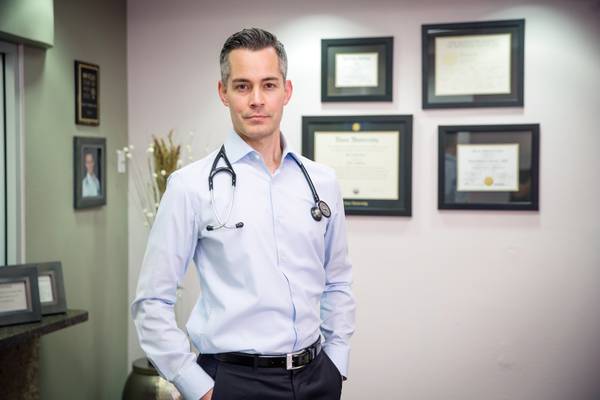Describe your practice.
Parker Medical offers traditional internal medicine and pediatric services, integrated with alternative medical approaches and personalized to meet your needs in a concierge setting. To invest more in your health, patients become members of the practice through a voluntary subscription. A subscription medical practice is a type of medical practice that limits the number of patients the practice treats. This allows our team to be more personally available to offer additional services and time.
When did you know you wanted to be a doctor?
I did not come from a family of doctors, but my interest in medicine started at a young age. I was diagnosed with a rare medical condition that required a lot of medical care and surgeries. Throughout the course of several years and hospitalizations, I really connected with my medical team and wanting to be a part of that to help others who were as helpless as I was at the time.
What is the most important part of your job?
I am consistently looking for ways to not only improve my patients’ health but also their experience. A lot of my patients go home to brokenness, they struggle with health issues, or battle conditions they have been unable to fix. Life has sometimes not been easy or kind to them. Many of my patients have been promised things that have never come or been given situations they didn’t ask for. They are sometimes worn, weathered, and they don’t trust well.
I think my favorite part of my job is during a patient’s first appointment, when the first thing I ask them is to tell me their goals. We sometimes laugh and we sometimes cry. I tell them I am going to be there for them as long as I can. I want their time spent at Parker Medical to be memorable, where they feel valued from the beginning.
What brought you to Las Vegas?
During my residency, I had the ability to produce and broadcast a medical news show called “In the Clinic” that aired on the CW. It provided families with a small dose of information and an opportunity for the audience to ask questions relevant to their health.
Working with that network gave me the ability to combine my compassion for the communication arts with my love for medicine.
The city has been called the “Wild West” of medicine. What challenges come with the local health care industry, on both sides of the stethoscope?
There are the many constraints placed on doctors that many people do not realize. Insurance reimbursement for providers in Nevada is one of lowest in the United States. This translates into the physical and emotional work of trying to complete a visit every 10 minutes while repeatedly refreshing a smile before bursting into another room to greet another patient needing help. This would begin to make anyone feel like a machine.
Do you think the role of a doctor has changed over the years?
I am often reminded that the days of Norman Rockwell or “Marcus Welby, M.D.,” are gone, but that is how I see my role. As a concierge doctor, I get to be the “small-town doctor” I grew up knowing — the doctor who made house calls, was available anytime you needed, or knew you and your family’s complete health profile.
How might an overhaul of health care at the federal level affect what you do?
The United States spent approximately $8,895 per person for health care in 2016, which is higher than any other developed country but is among the worst health outcomes. If we want to decrease the cost of American health care, it will be imperative to make efforts to retain primary care physicians, decrease administrative costs and overhead spending, and put back some autonomy in physicians’ hands so customer satisfaction does not override the importance of good patient care. In addition, health care companies and patients need to recognize that those of us who chose to study medicine are not merely well-trained machines but humans who strive to deliver care with compassion, empathy and expertise.

